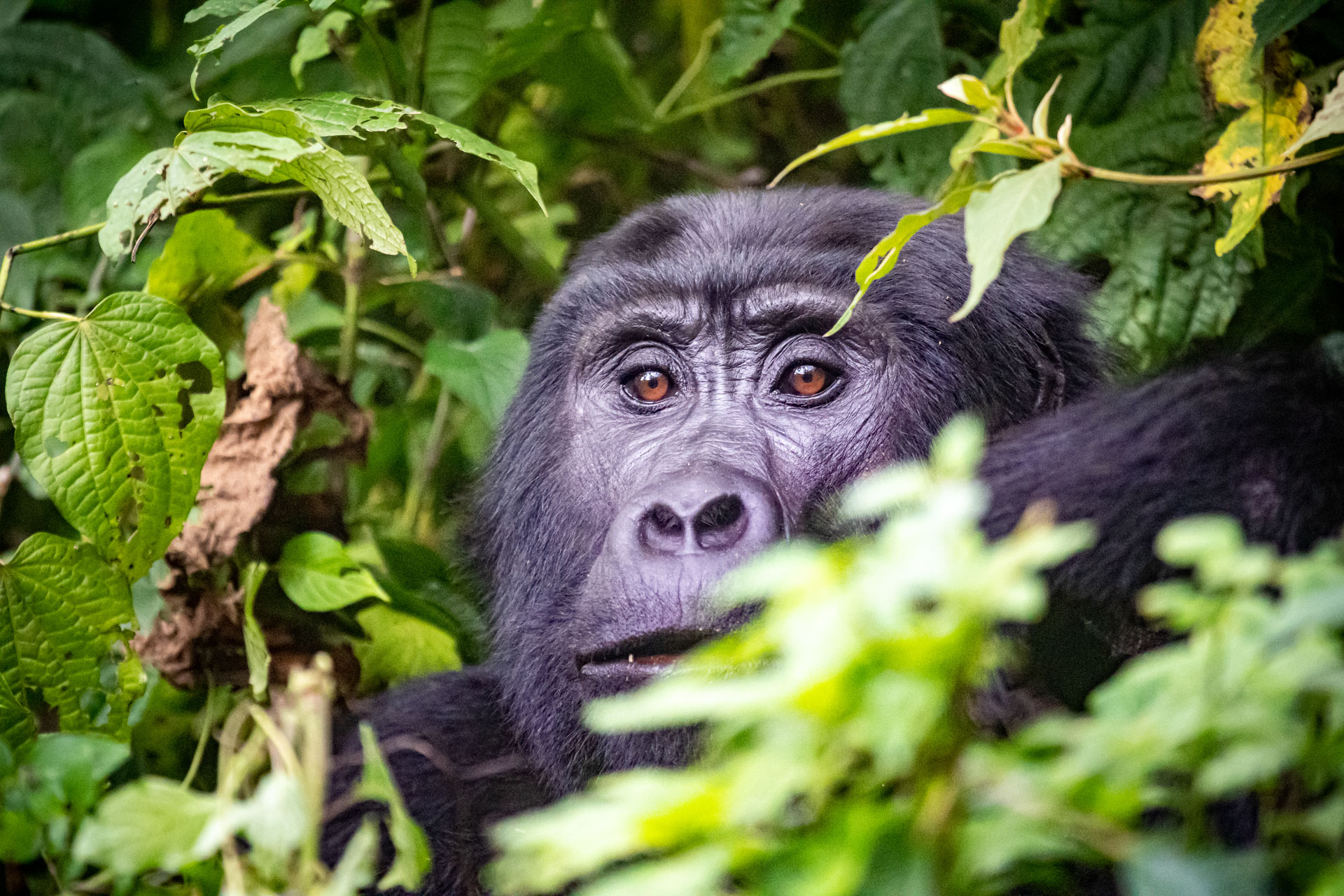
Uganda's Bwindi Impenetrable Forest — Bwindi meaning 'a place of darkness' in the Runyakitara languages — is a dense forest and a UNESCO World Heritage Site near the border of Rwanda and Congo. Western Uganda is bursting with green vegetation and blue lakes, with rich volcanic soil that fuels unique ecosystems and supports an environment full of biodiversity. This is one of only a handful of places in the world where you can find wild mountain gorillas and where I experienced one of the most powerful wildlife encounters of my life.
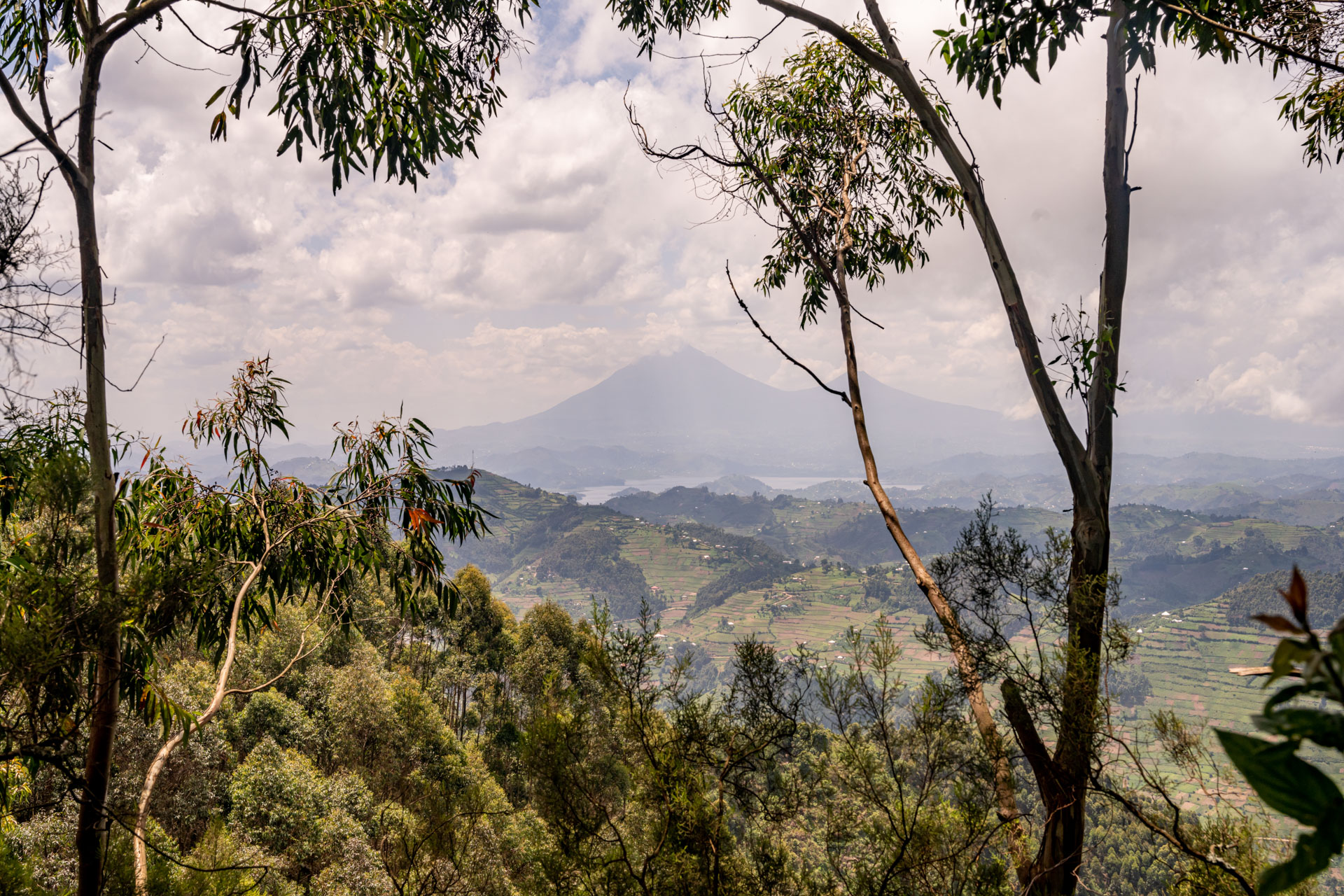
Close to half of the world’s remaining wild gorilla population is located in Bwindi (roughly 400 out of 1,000), with the rest found in Rwanda and Congo. The numbers, recorded by counting the gorilla nests which are made fresh every night, have grown from a total of only 250 in the 1980s when they were on the brink of extinction. In Bwindi, you can also find nine other primate species, such as the Blue and Red-tailed monkeys, Black and White Colobus monkeys, L'Hoest monkeys and hundreds of different bird species.
What makes the experience here unique is the ability to do habituated or unhabituated treks with gorillas. Uganda Wildlife Authority rangers follow these families for roughly three years before they become comfortable with humans. In habituated treks, after you locate the gorilla family assigned to your group, you are allowed to stay with them for an hour, often getting quite close — which requires you to wear masks to prevent transferring any diseases to the gorillas. There are 19 habituated gorilla families between four regions of the park, Buhoma, Ruhija, Nkuringo and Rushaga.
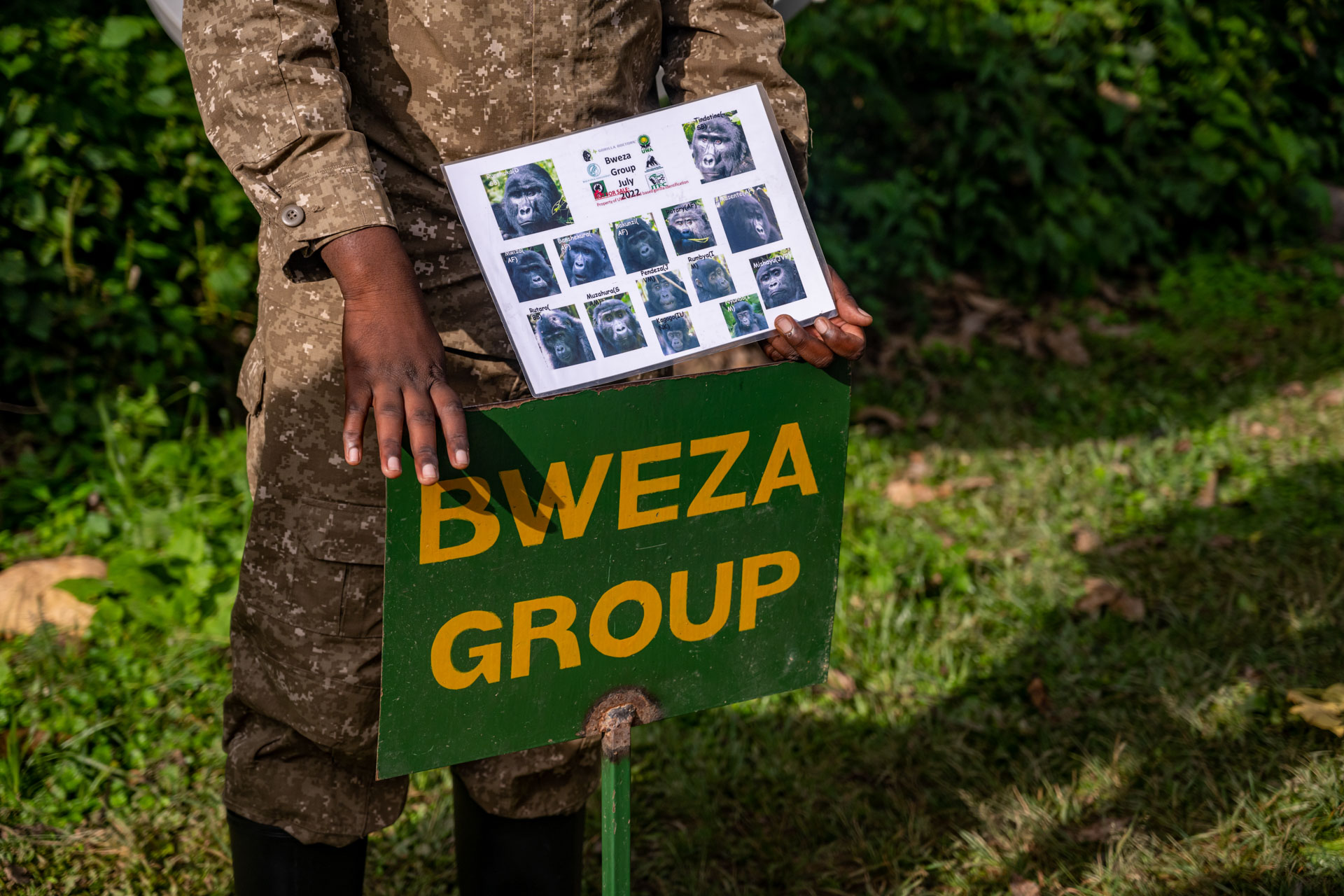
An unhabituated trek allows you to spend more time with gorillas that are still getting used to human presence in the three-year window. On these treks, you are allowed to spend up to four hours with the families, observing them from a distance. After several hours of trekking going through dense forest with no discernable trails, following experienced rangers who create paths where there are none, you come across shadows in the distance.
The terrain is ragged and gorillas like to spend time on slopes which can be very difficult to get to so some level of fitness is required. However, all the intensity of the hike melts away when you get your first glimpse of them through the trees.
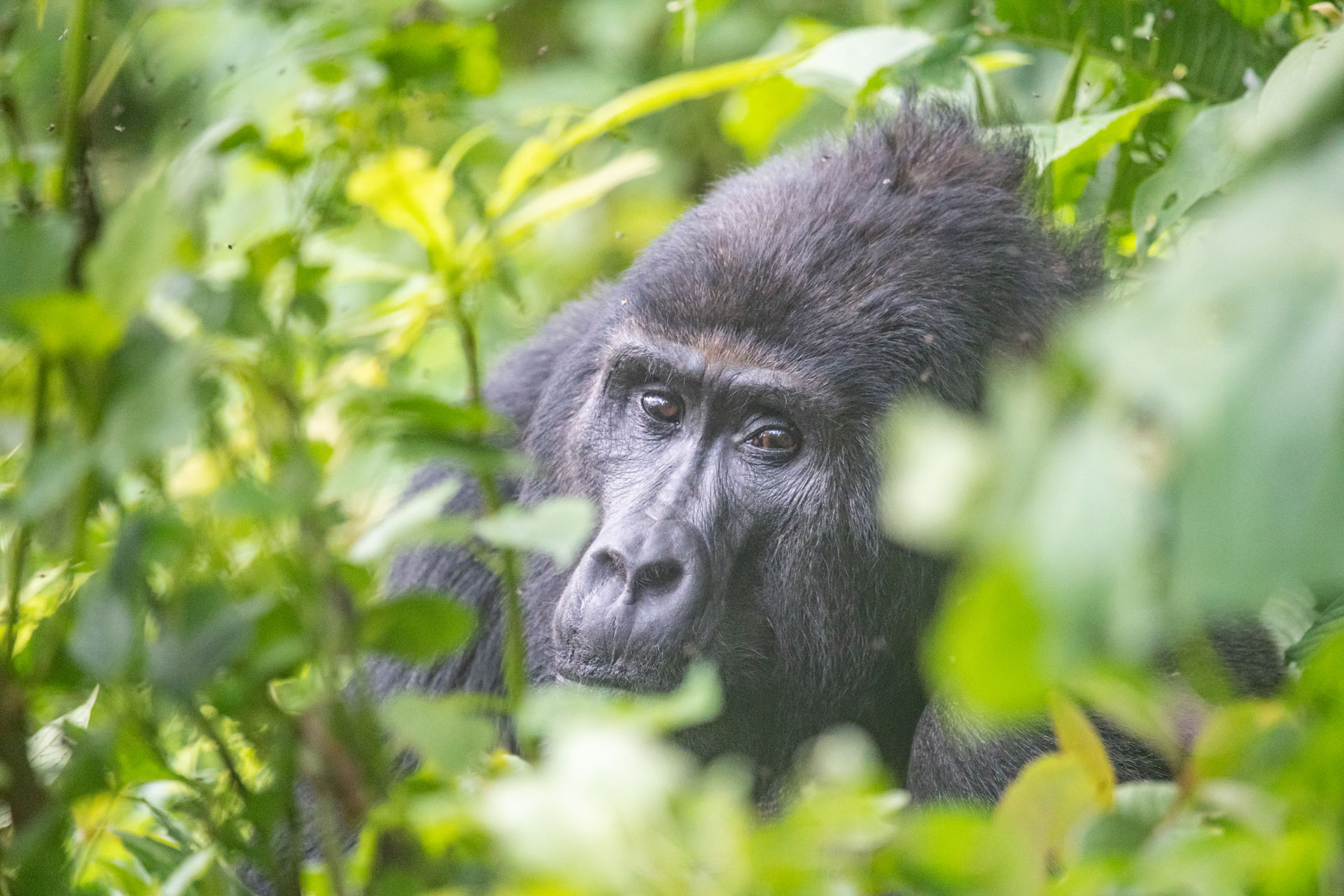
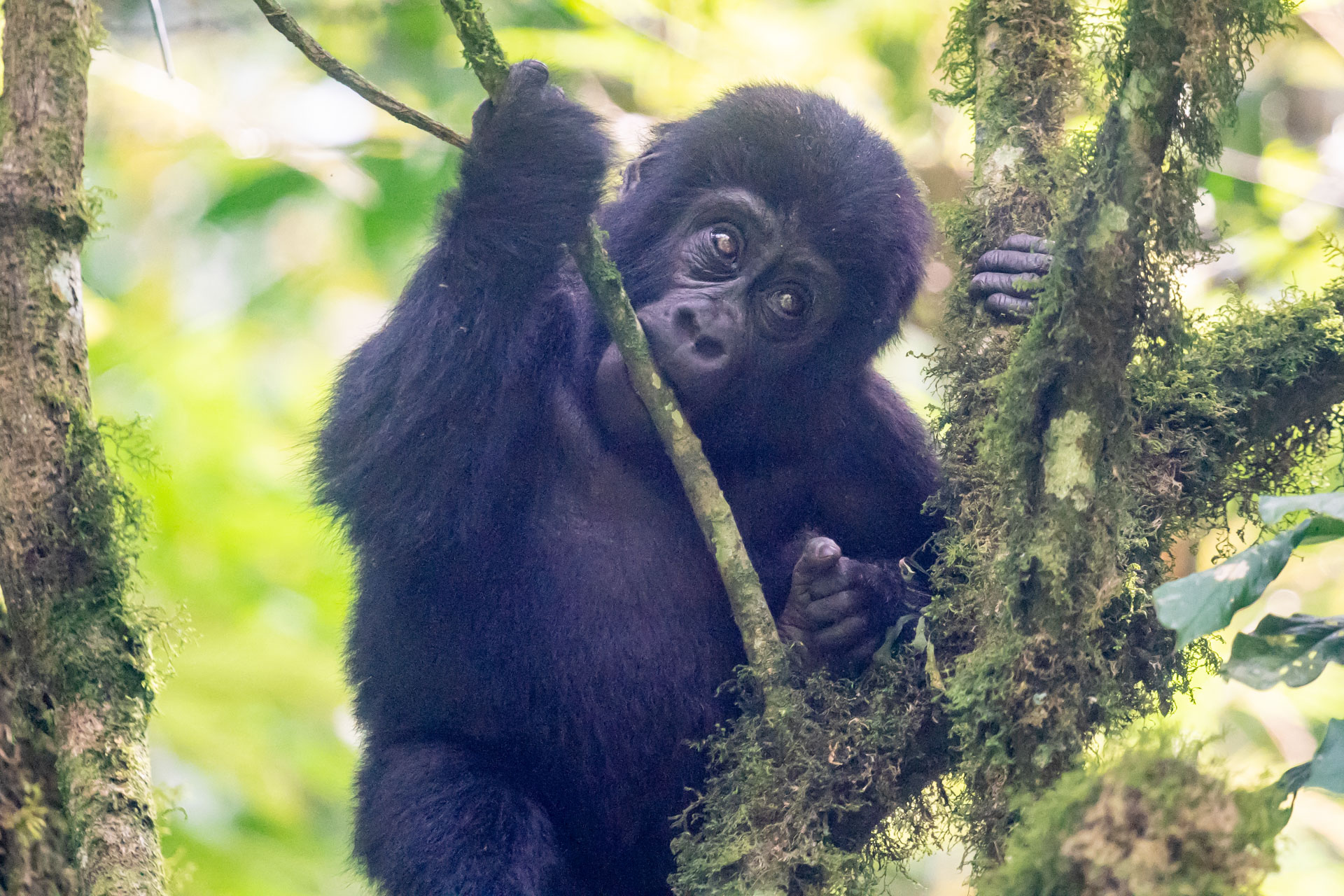
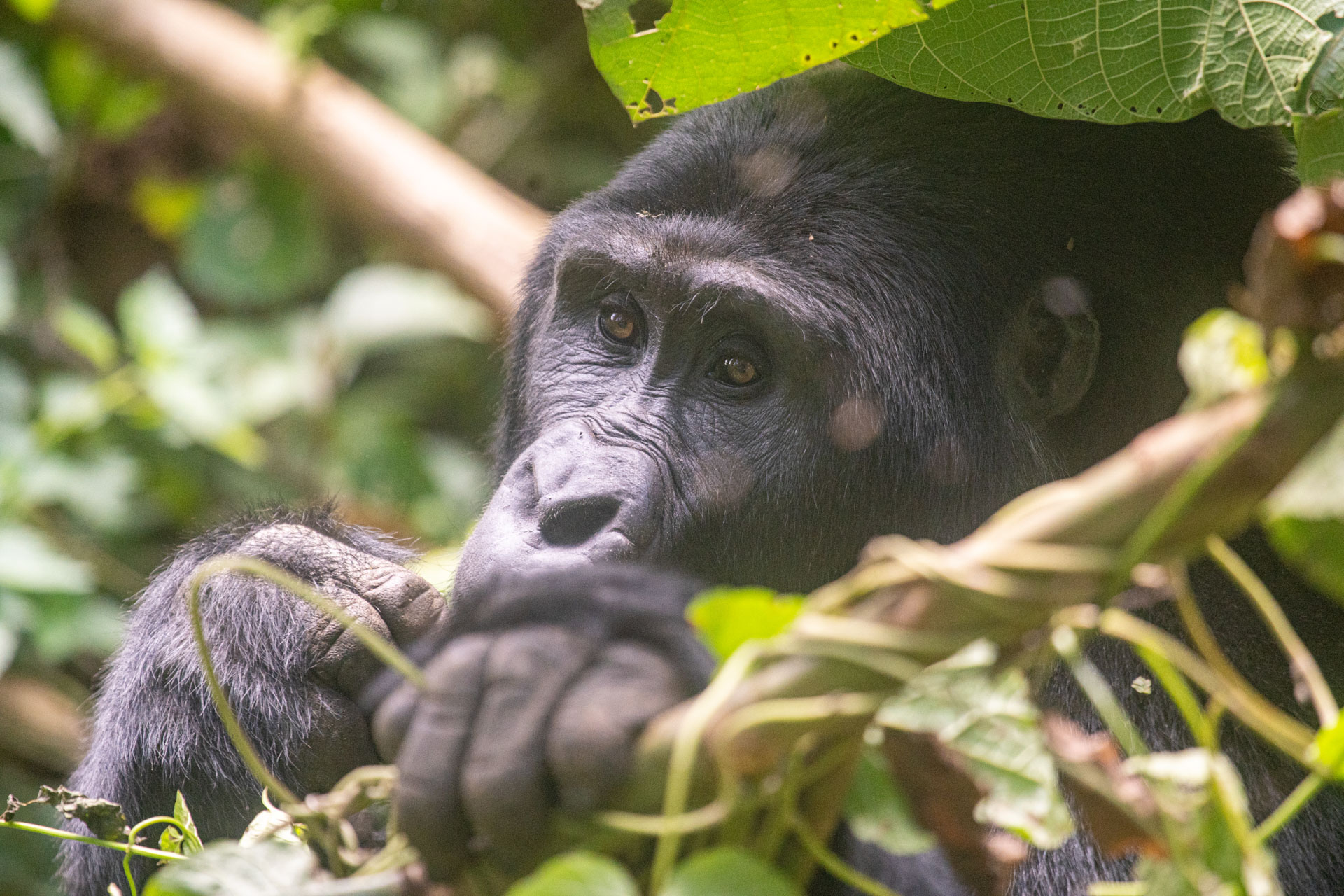
Mountain gorillas are typically very gentle creatures and rarely show aggression. But the silverback, the dominant male in each family, will defend his troop if he picks up any sign of threat and will also use intimidation tactics such as chest-beating to show his dominance. While you are safe in the company of experienced guides and rangers, you need to be very careful with your movements and eye contact as these gorillas are not yet accustomed to humans and can become easily agitated.
We watched as small groups, totalling over 30 individuals, came in and out of the shadows and thick bush, the silverback guarding the group while the rest played and groomed each other. You begin to recognise their human-like interactions — fitting, as we share nearly 98% of our DNA. After being on foot, so close to these glorious creatures, it is impossible to articulate what I was feeling in those moments other than sheer awe.
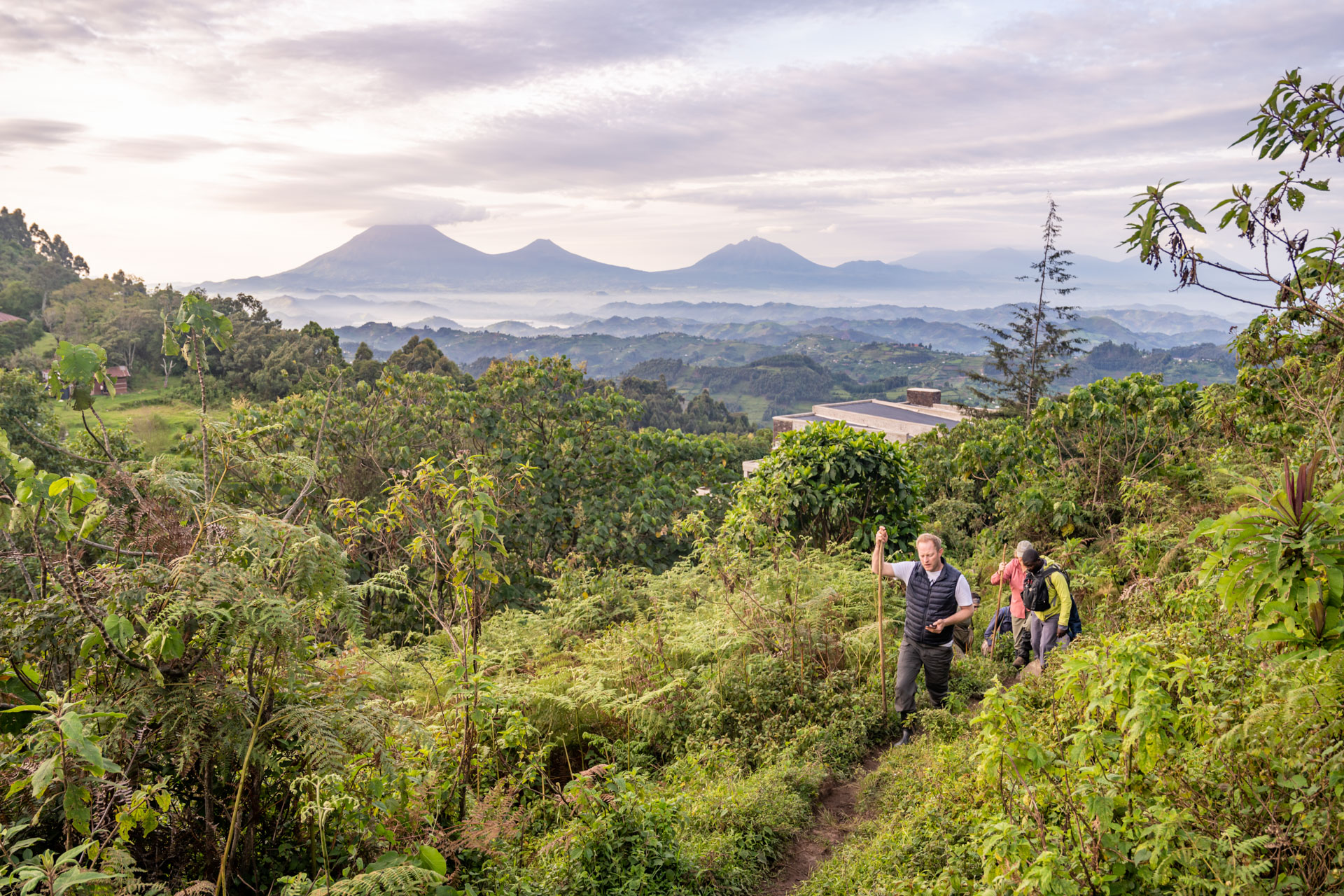
Along the way, we even saw African forest elephants — a rare treat as this is one of the only places they can be found — while a plethora of birds could also be heard calling, flying from tree to tree. Rewilding forests and establishing more places where all of these animals can thrive is crucial for their survival. For the mountain gorillas in particular, creative and new ways need to be developed in which transboundary parks expand and wildlife and community conflicts can be reduced. Rather than ownership, it is important to think about strategic sustainability in a way that benefits both. This is a first step.
Filed under: East Africa Travel
Subscribe for Weekly Stories
Comments (0):
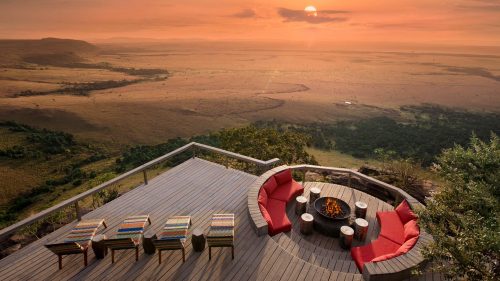
Angama Image Gallery